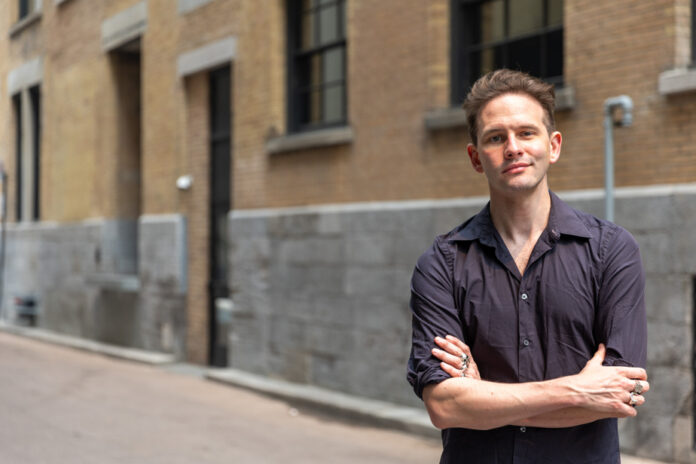You don’t know Felix LaHaye? You’re probably over 25, not into video games and esports, and don’t live in California. This jack-of-all-trades who grew up in Outremont and moved to Los Angeles 12 years ago is at the heart of a veritable colorful empire whose raison d’être he sums up as follows: “to create entertainment, media and marketing for people between the ages of 18 and 25”.
“That’s how I would explain it to my aunt,” he laughs.
He is, in fact, an observer who has fallen in love with this generation that the big brands would like so much to seduce. “We are a company specializing in video games and electronic sports,” he explains. Gaming is by far the most important form of culture and entertainment, in terms of revenue and participation, for this Gen Z.”
He made his mark with improbable campaigns, selling for example Tide, Cottonelle or Tampax in association with the NFL to these young people, recruiting big brands like L’Oréal, Johnson
It’s hard to avoid misunderstandings when a Gen X journalist interviews a 35-year-old Y about Gen Z. Félix LaHaye’s resume is itself a challenge. Born in Montreal in 1988, he completed his secondary studies in France before enrolling in management economics at the London School of Economics in 2006. Author-performer, he signed a recording contract in 2007. Back in Montreal , he works in two radio stations.
“It was cool, I wanted to stay in music,” he says. Unfortunately, radio is not a medium that works very well today. I told a friend that I wanted to go to Los Angeles. Ten days later, we moved. »
It was there that he co-founded in 2013 the first marketing agency linked to electronic sports, Instabrand, which would become Open Influence. In 2018, he founded United Esports, which organizes electronic sports competitions, now owns 27 Kappa Meltdown bars around the world and invests in the Talon Esports stable.
Quickly, the young man and his partners saw the interest of the big brands to approach Generation Z. Their approach is a summary of the digital culture of these young people.
“Now nobody cares about us poor millennials. But there are big differences between Zs and millennials, much more than between millennials and Gen Xers. There is a huge schism. It’s a great generation. »
Video games are central to the Zs, he analyzes, and girls and guys play it just as much. “It’s a social activity, they talk to each other when they play. They, when they finish a tournament, they don’t go to bars, they go to hotels to play Fortnite,” he says.
We obviously do not seduce these young people with the good old method of banal advertising inserted into a film or a program. “If an ad interrupts the user’s experience and isn’t entertaining, it’s going to be viewed negatively,” LaHaye explains. There are still a lot of people who choose to do flat ads, when it is possible to do ads that are cool to see. We do it, on Twitch, YouTube. »
The other level, much more promising and surprising, is to associate a sponsor with an event. We have set up competitions called Tide Laundry Trials, obviously sponsored by Tide laundry, during which stars compete in a video game. The loser agrees to do the other players’ laundry.
Another example: Cottonelle sees its mark featured when a player achieves in a video game what is called a “Team Wipe”, an instant elimination of the opposing team which could be translated as a “team wipe”.
“That’s the difference between 2023 and 1995,” says Félix LaHaye. Before, your show and your ads had to be general enough to reach everyone. Now we know who is watching, what they want to see. »





